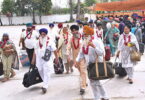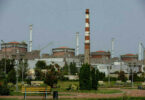Dr. Nadeem Jan
Was it a mere coincidence, a well-thought-out analysis or power of imagination that made Prime Minister Imran Khan to announce100% Universal health coverage and “meal for all” his new year resolution? OXFAM in its research policy paper “The Virus of Inequality” – released yesterday-concluded these as key pillars of building back the world better.
OXFAM- a reputed NGO known for audacious & value driven policy papers–enlightens in this report on who, where, why and how suffered and who prospered inthis pandemic.
Report suggests need for urgent and radical changes in the existing ecosystem, which has “exploited and exacerbated patriarchy, white supremacy and neoliberal principles” driving extreme inequality, poverty, and injustice.
The report seems much in consonance with principles of PM’s Riyasat-e-Madina model.
For this report Oxfam’s conducted a survey of 295 leading economists from 79 countries on the effects of Corona on economy, includingprominent figures like Jayati Ghosh, Jeffrey Sachs and Gabriel Zucman. 87% of respondents expressed that income inequality in their country was either going to increase as a result of the pandemic. Two thirds felt that their government did not have a plan in place to combat inequality.
The World Bank has calculated that if countries act now to reduce inequality then poverty could return to pre-crisis levels in just three years, rather than in over a decade.
The virus has exposed, fed, and increased existing inequalities of wealth, gender, and race. Over two million people have died, and hundreds of millions of people are being forced into poverty while many of the richest – individuals and corporations – are thriving.
Billionaire fortunes returned to their pre-pandemic highs in just nine months, while recovery for the world’s poorest people could take over a decade. The crisis has exposed our collective frailty and the inability of our deeply unequal economy to work for all. Yet it has also shown us the vital importance of government action to protect our health and livelihood.
Oxfam’s report more broadly shows how deeply unequal our economic and health systems are and how they fuel inequality and poverty.
It says, “The world’s 10 richest billionaires have collectively seen their wealth increase by $540bn over this period. Worldwide sales of private jets soared when commercial travel was banned.The world tiny group of over 2,000 billionaires has more wealth than they could spend in a thousand lifetimes.
For 40 years, the richest 1% have earned more than double the income of the bottom half of the global population. The richest 1% have consumed twice as much carbon as the bottom 50% for the last quarter of a century, driving climate destruction.”
The report highlights that increase in the wealth of the 10 richest billionaires since the crisis began is more than enough to pay for a COVID-19 vaccine for all.
The coronavirus pandemic has exposed the risks that come from commodified and underfunded health systems; lack of access to water and sanitation; gaps in social protection; and the destruction of our environment. It has revealed how our deeply unequal, racist, and patriarchal systems affect marginalized people in the world.
Coronavirus pandemic has also exposed the worst effects of poorly equipped, underresourced and inequalpublic health systems on the population.The likelihood of dying from COVID-19 is significantly higher if one is poor.
It has been estimated that the pandemic will reverse the gains of the last 20 years of global progress made on girls’ education, resulting in increased poverty and inequality.
A catastrophic loss of income without any protection has led to an explosion in hunger. It was estimated that at least 6,000 people would die every day from COVID-19-related hunger by the end of 2020.
There must be no return to inequality as usual. Instead, governments must muster the urgency to create a more equal and sustainable world and a more human economy.
Oxfam has identified transformative steps that the world should take to build it back better.
I.Governments must invest in free universal healthcare, education, care, and other public services. Universal public services are the foundation of free and fair societies and have unparalleled power to reduce inequality. They help to level the playing field for historically oppressed and marginalized groups like the one in Indian occupied Kashmir and Gaza.
Pakistan has jumped up the bandwagon of UHC and surprised the world by committing to universal health coverage for its entire population.
The OXFAM report urges that the governments must urgently deliver a ‘People’s Vaccine’ to tackle the pandemic. To do this they must face down pharmaceutical corporations and insist on open access to all relevant patents and technology to enable safe and effective vaccines and treatments for all.
Calling on the rich’s conscious OXFAM appeals that cancelling debts would release $3bn dollars a month for poor countries to invest in free healthcare for everyone.
II.Income security Inequality should be prevented from happening in the first place. To do this, businesses should be redesigned to prioritize society, rather than payouts to rich shareholders.
Incomes should be guaranteed and maximum wages could be introduced. The virus has shown that guaranteed income security is essential, and that a permanent exit from poverty is possible. Pakistan social protection scheme under EHSAS program is one success story that could doll out 144 billion to poor families for supporting their income.
III.Progressive taxation of the richest members of society is the cornerstone of any equitable recovery from the crisis, as it will enable investment in a green, equitable future.
Argentina showed the way by adopting a temporary solidarity wealth tax on the extremely wealthy that could generate over $3bn to pay for coronavirus measures, including medical supplies and relief for poor lot. A tax on the excess profits earned by corporations during the coronavirus pandemic could generate $104 bn: enough to provide financial support for all children and elderly people in the poorest countries.
IV. Climate change is the biggest threat ever to human existence. It is already destroying the livelihoods and taking the lives of the poorest and historically oppressed communities.
To prevent this, we need to build a green economy that prevents further degradation of our planet and preserves it for our children. We need an end to all subsidies for fossil fuels, and an end to fossil fuel corporations and their rich shareholders making profits from government bailouts.
The pandemic has shown that massive action by governments is possible in the face of a crisis; we must see the same level of action to prevent climate breakdown.
The future depends on the choices we make now. We are at a pivotal point in human history, a moment that will be written about in history books.
We cannot return to the brutal, unequal, and unsustainable world that the virus found us in. Humanity has incredible talent, huge wealth, and infinite imagination. We must put these assets to work to build a more equal human economy that benefits everyone, not just the privileged few.
The Report summarises, “Above all, we are reminded that inequality and despair does not have to be our destiny. In solidarity, we stand better chances to form a more equal and just world.”
Dr. Nadeem Jan (Tamgha I Imtiaz) is an internationally recognized health &Polio expert, who has an illustrious career with UN, USAID, World Bank, Bill Gates Foundation and Governments of Pakistan, Somalia, Kenya, Ethiopia, South Sudan, Afghanistan, and Philippines. He is architect of various health & immunization strategies and authored various research articles.
He can be reached at Nadeemjan77@hotmail.com






